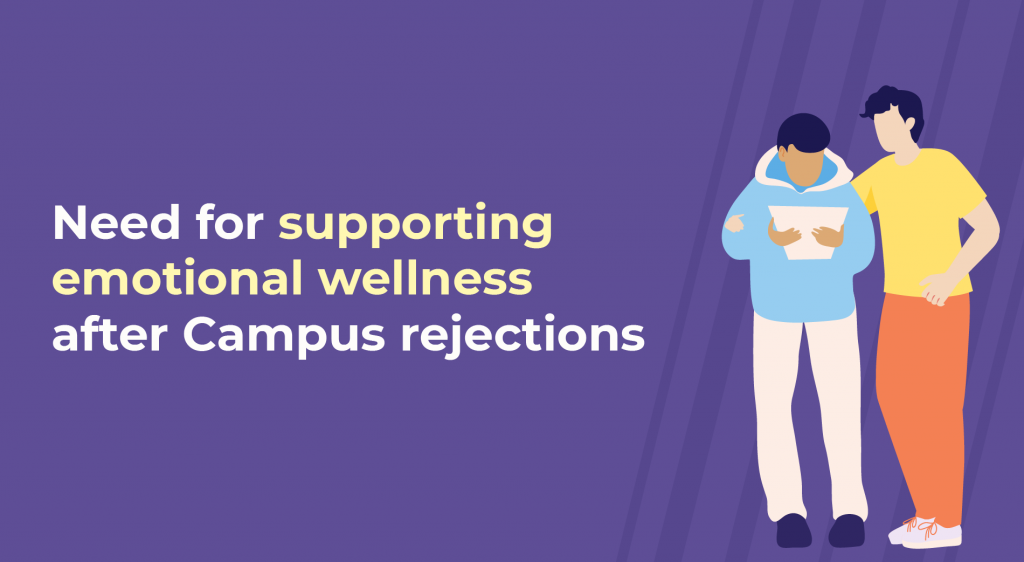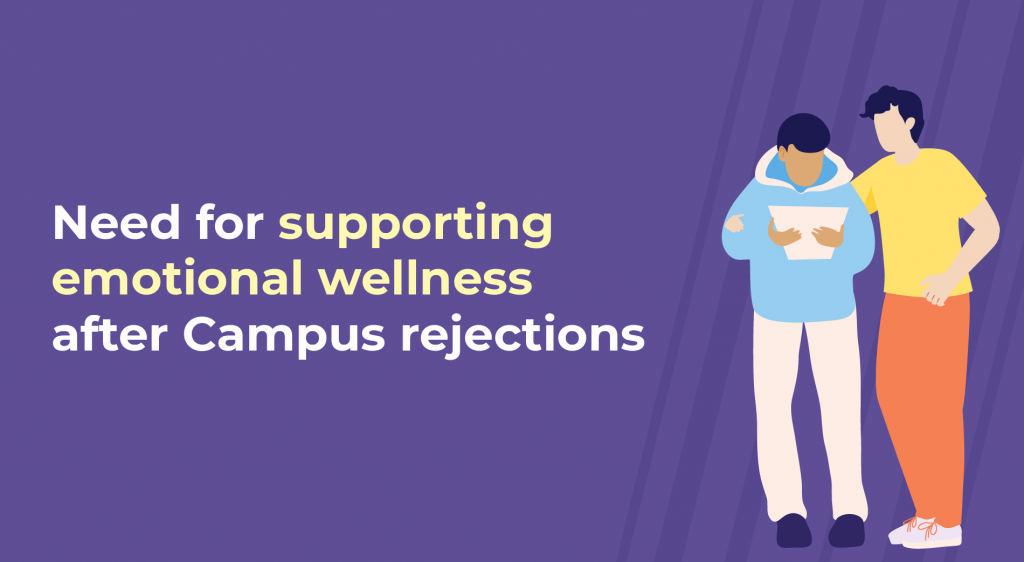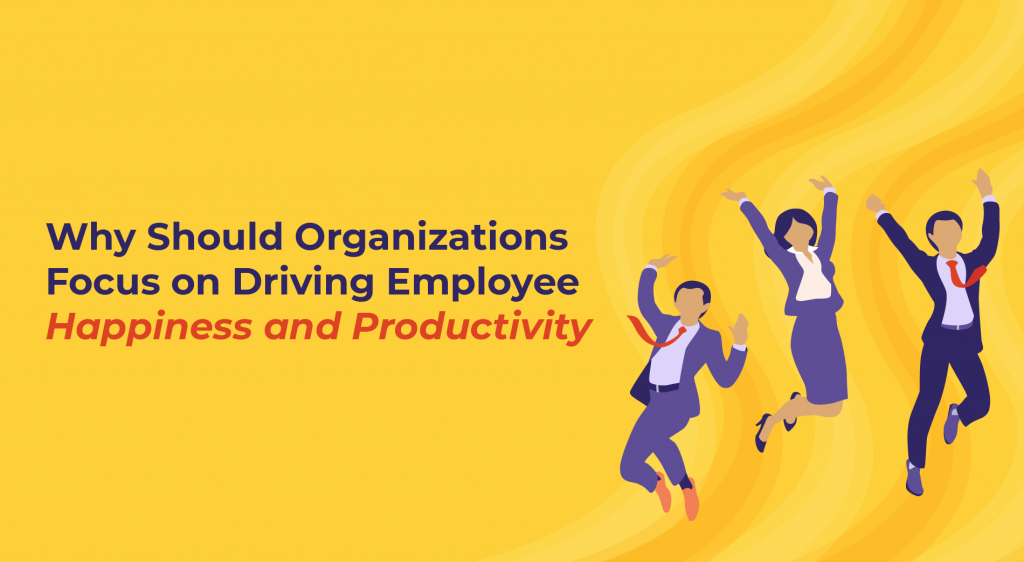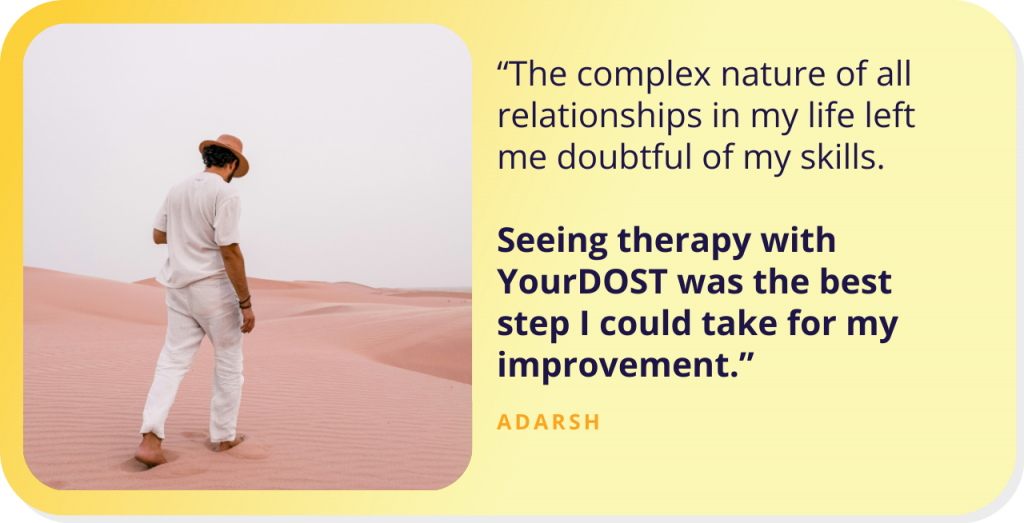
Need for supporting emotional wellness after Campus rejections

Campus interviews are not just a phase but a pivotal moment in a student’s life. They anchor students with career goals and establish purpose. This is the time when many skills and abilities matter, and students find it challenging to grapple with anxiety and pressure to secure a spot in top companies.
Educators and administrators play a crucial role in guiding students through this journey.
In a country where the education index is increasing, especially with growing competition and proliferation in academia, traditional programs are being replaced by multi- and trans-disciplinary courses like Development studies, Cognitive Sciences, Sustainable Development studies, etc.
These courses, which integrate knowledge and methodologies from multiple disciplines, open up new dimensions for students to focus on their careers and futures, providing them with a broader perspective and a more diverse skill set.
Research states that over 2 million students in India participate in campus placements each year, including those from public and private institutions and specialized fields like law, medicine, and architecture. With placement rejections becoming more common, promoting resilience through workshops and encouraging a growth mindset can empower students to view setbacks as opportunities for growth.
How Placement Rejections Can Affect Mental Health?
Placement rejections are not just disappointing news, but they can significantly impact an individual’s mental health. Every student who appears undergoes a severe amount of stress and nervousness.
This can lead to feelings of inadequacy, eroding confidence and self-esteem. Educators and mental health professionals need to understand and address these challenges.
A survey conducted among PhD scholars at IIT Kanpur revealed that 80% of them experienced mental health challenges, with 60% contemplating dropping out due to the pressures and rejections associated with their academic and placement struggles.
This illustrates the profound impact of fear of failure and rejection on students’ mental well-being.
These are some ways in which it can affect mental health:
- Repeated rejections can erode confidence and self-esteem, leading to a negative impact on mental well-being.
- The uncertainty about future career prospects can also contribute to heightened levels of distress.
- This puts the student into the rabbit hole of comparing with their peers, which can bring up a range of unpleasant, difficult emotions, such as anger, jealousy, frustration, self-doubt, and insecurity.
Why Are These Rejections Increasing?
The world is becoming more competitive, and so are the job markets. This constant tussle requires students to cultivate adept knowledge in their respective streams.
The gap between what companies seek and what graduates offer is widening, with many students needing more preparation for the rigorous selection processes.
According to Deloitte’s report, in 2023, approximately 58% of engineering students across India needed help to secure jobs through campus placements. This high rate of rejection contributes to increased stress and anxiety among students, with many struggling to cope with the emotional impact of not being selected during these interviews.
This trend highlights the pressing need for educational institutions to better align their curriculum with industry expectations. This alignment is crucial to ensure students have the knowledge and skills necessary to thrive in today’s dynamic job landscape. Educators and administrators need to work together to bridge this gap.
Most of the time, the nature of an unsaturated job market, where job seekers exceed the number of available jobs, always invites poor mental health among freshers. The intense competition and the fear of being unable to secure a job can significantly impact their mental well-being.
A recent survey highlighted that 64% of Indian students aged 18-23 reported mental health as their top concern, surpassing other significant worries like COVID-19 (60%) and job prospects (56%). This underscores the high levels of anxiety and stress students face, particularly during critical phases like campus placements (Times Higher Education (THE)).
What Measures Should Management Initiate To Assist Students In Navigating Through Challenging Times?
The students rely upon management to facilitate their placements and will ascertain reliance on them in case of failure. In tough times, management can be a guiding light for students.
By offering mental health support, tailored counseling, and a nurturing environment, they empower students to navigate challenges with resilience and confidence, turning obstacles into opportunities for growth.
A study by the National Institute of Mental Health and Neurosciences (NIMHANS) in Bangalore found that students who regularly used campus mental health services reported a 20-30% improvement in their academic performance and overall well-being.
Here are some measures colleges can take:
1. Offer Rejection Resilience Workshops: Organize workshops to develop emotional resilience and coping mechanisms for handling rejection with care and understanding.
- Schedule regular sessions with mental health professionals.
- Provide resources like self-help guides and peer support groups.
2. Enhance Career Counseling Services: Provide one-on-one career counseling to help students explore alternative career paths and opportunities.
- Increase the availability of trained career counselors.
- Offer personalized career assessments and follow-up sessions.
A World Health Organization (WHO) study, including Indian university students, showed that those with access to mental health resources were 30% more likely to engage positively with challenges like campus placements, reducing their fear of rejection (Times Higher Education (THE)) (Deloitte United States).
3. Promote Alumni Mentorship Programs: Connect students with alumnis who have faced and overcome similar career challenges.
- Create a structured mentorship program with regular check-ins.
- Organize networking events with alumni from diverse fields.
4. Implement Mindfulness and Stress Management Initiatives: Introduce mindfulness practices and stress management workshops to help students manage anxiety.
- Offer daily or weekly mindfulness sessions on campus.
- Provide access to apps or online platforms for mindfulness and relaxation techniques.
A report by the Tata Institute of Social Sciences (TISS) found that implementing comprehensive
mental health programs led to a 15-20% decrease in anxiety and depression among students, improving their coping mechanisms during campus placements (Times Higher Education (THE)).
College is where the change must begin, and measures into effect can be attained. By tackling these prevalent issues and enacting the proposed solutions, students can elevate their interview prowess and significantly enhance their likelihood of securing the coveted internship or job position.
Additionally, if you wish to help students with placement pressure or campus rejection and provide them with the best toolkit and mentorship, check out the help we offer from our versatile mental health professionals.







